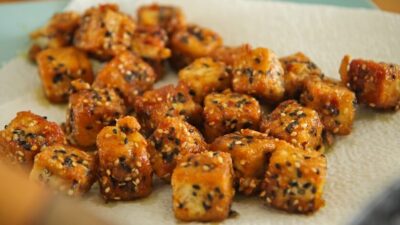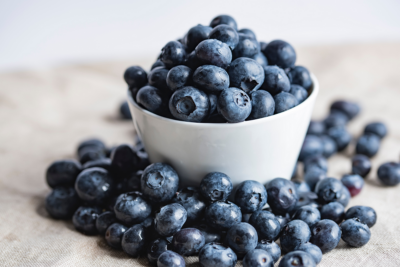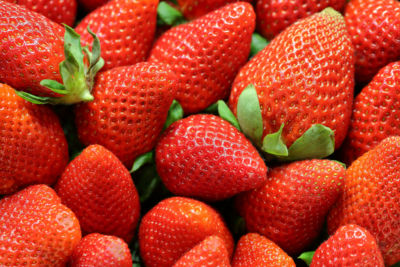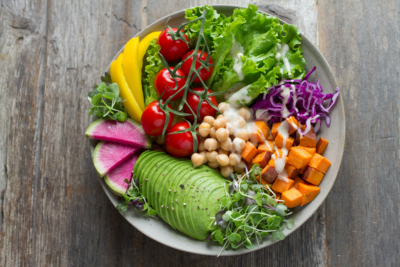We often receive messages from Veganuary alumni on how switching to a plant-based diet has significantly improved their health.
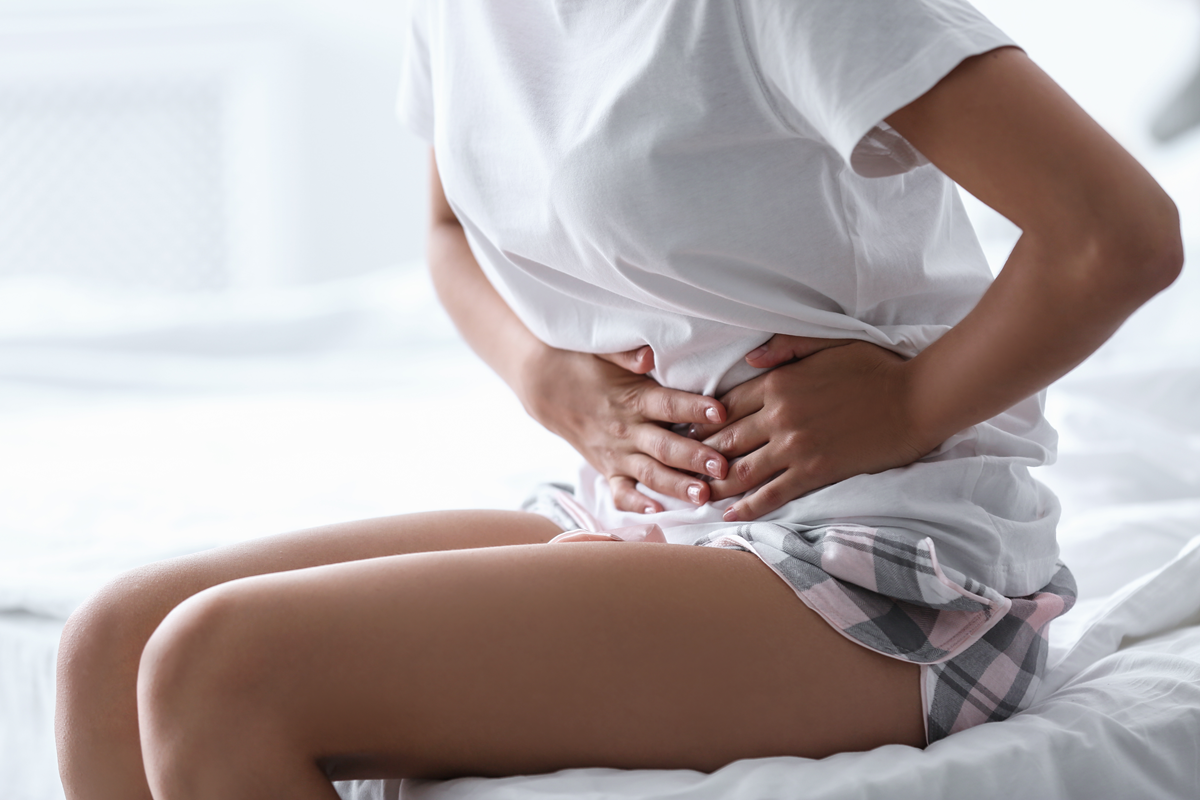
Reduced blood pressure and cholesterol levels, more energy and better digestion are among the most commonly cited changes, but every now and then, something new catches our eye.
And when we heard from one woman about the “significant improvement with endometriosis”, we wanted to find out more about this condition and how diet could impact it.
What Is Endometriosis?
Endometriosis is a condition where tissues that are similar to the lining of the womb grow in other parts of the body, most commonly in the ovaries and fallopian tubes.
However, it is thought that endometrial cells can travel through the lymphatic system and affect more distant organs, including the eyes. Wherever they end up, these cells behave like those in the womb, building up and then breaking down and bleeding.
Symptoms of Endometriosis
Symptoms include chronic and debilitating pain during menstruation, with some people reporting that their periods are more painful than childbirth. They may also experience painful bowel movements, pain when urinating and pain during or after sex.
Unsurprisingly then, endometriosis can lead to fatigue and exhaustion, depression and isolation, and can have a profound effect on daily life. Endometriosis can also affect fertility which in turn impacts relationships and life plans.
What Causes Endometriosis?
We don’t know precisely what causes every case of endometriosis, but Endometriosis UK sets out some of the factors that are thought to contribute to it:
- Retrograde menstruation: where some of the womb lining flows backwards through the fallopian tubes
- Genetic predisposition: some research is suggesting a link here
- Immune dysfunction: there seems to be a link between reduced immune function and endometriosis but how they are connected is unclear
- Environmental causes: it is possible that toxins in our environments contribute to endometriosis
- Metaplasia: where one type of cells morphs into another, often in response to inflammation
Managing Symptoms of Endometriosis
Managing the pain of endometriosis can go a long way to making living with the condition more bearable. Alongside analgesics, heat – such as a hot water bottle or wheat bag – can be comforting.
Some people have found TENS machines bring relief, while others report Pilates or physiotherapy can help. For some people, prescribed oestrogen can reduce or end the pain, while for others surgery is the best option. Increasingly, research indicates that what we eat can also have a profound effect on endometriosis symptoms.
Inflammation and Endometriosis
Inflammation is one of the key factors in endometriosis, which is why some studies suggest that a diet rich in antioxidants, which balances out the oxidative stress that causes inflammation, can be helpful.
Of course, with a condition caused by multiple factors and with varying symptoms, there is never going to be a one-size-fits-all solution, but a diet that helps to reduce inflammation can only be positive.
Meat, Fats, and Endometriosis
A study of 81,908 women over 20 years provided an important dataset about risk factors for endometriosis. They found that a “major culprit” was red meat – both processed and unprocessed. But that’s not all. The researchers stated that: “A quite unexpected result was the rise in endometriosis risk with increasing intake of poultry.”
Increased risk was also associated with a higher intake of trans fats – found in red meat and processed foods – and saturated fats, which are most commonly found in animal-derived products.
Plant-Based Diet and Endometriosis
Because of its well-known anti-inflammatory properties – and because it contains no red meat or poultry, and little trans or saturated fats – a plant-based diet is an excellent place to start when it comes to reducing endometriosis risk and managing its symptoms.
A whole food plant-based diet is also naturally fibre-rich. This is important because fibre helps to flush excess oestrogen out of the body, and it is the presence of oestrogen that allows endometriosis to advance. Adopting a plant-based diet has been impactful for so many people with endometriosis, including bloggers Brooke Morton and Lianna Levine Reisner, as well as our Veganuary alumni who got in touch.
Soy and Endometriosis
According to research published in Cambridge University Press, “Soy consumption is supposed to have protective effects against cardiovascular disease by cholesterol-lowering and blood pressure improvement action and in the prevention of cancer or diabetes and it also supports bone health and the management of menopause symptoms.”
While it is clear that soy plays a positive role in many different health outcomes, there have been queries over its action on endometriosis because soy contains phyto-oestrogens.
However, studies have shown that phyto-oestrogens, although they look like oestrogen, do not act in the same way, and that much of the criticism previously levelled at soy is now debunked. In fact, research suggests that soy is beneficial to reproductive health in a number of ways, including reducing the risk of breast, ovarian, and endometrial cancers.
5 Tips to Manage Endometriosis Through Diet
While a combination of therapies and interventions may be needed to successfully manage endometriosis symptoms, many people have found that diet can have a surprisingly profound effect. These are the top tips, backed by science.
- Eat a balanced, low-fat, plant-based diet. Avoiding meat is crucial so ensure a good supply of plant proteins, and plenty of anti-inflammatory whole grains, fruits, and vegetables.
- Increase your fibre intake. If you are following Tip No, 1, you are almost certainly already getting plenty of fibre, but keep an eye on it. Choose wholemeal bread and pasta, and lots of peas, beans, lentils, and veggies.
- Vitamin D deficiency is strongly connected to endometriosis, so pay attention to this important vitamin. The best source is the sun, though it can also be obtained from mushrooms. To ensure a constant and sufficient supply, especially in the winter months, we recommend supplementing.
- Seaweed is a clear recommendation for those with endometriosis symptoms as it contains unique nutrients that manage oestrogen in ways currently not yet confirmed. More information on that can be found here.
- Vitamins C and E have both been found to significantly reduce the symptoms of endometriosis compared with a placebo. So, incorporate plenty of citrus fruits, berries, bell peppers, and broccoli (vitamin C) along with nuts, seeds, wheatgerm, avocados, spinach, and butternut squash (vitamin E).
Conclusion
Endometriosis is a debilitating and painful condition which is not fully understood, but studies have shown there are things we can try to manage the symptoms.
They include applying heat, undertaking gentle movement, taking painkillers and speaking to your doctor about other medical or surgical options.
But another option is to consider what we eat, and we’d recommend starting with our five top tips.

